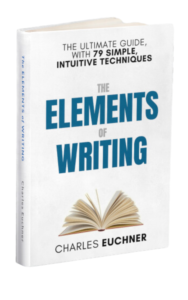More than a decade ago, University of Virginia cognitive psychologist Daniel Willingham decided he needed to translate the technical, specialized academic work into a form that teachers and parents could understand–and use. So he gathered his work on learning and teaching and wrote Why Don’t Students Like School? The book has become a classic in education.
More recently, in The Reading Mind, Willingham explains what happens when our eyes cast down on a text. How can all of these odd letter shapes combine to produce ideas, memories, and questions? The key, says Willingham, is that readers use the symbols to recall and imitate the sounds that happen in oral communication. Writing, in a sense, piggybacks spoken language.
 In a recent article in The New York Times, Willingham argues that broad knowledge of a wide range of subjects — literature, the arts, history, philosophy, science and technology, and more — is essential to good reading. Reading, then, is only partly a skill. It is also a conversation that requires cultural literacy.
In a recent article in The New York Times, Willingham argues that broad knowledge of a wide range of subjects — literature, the arts, history, philosophy, science and technology, and more — is essential to good reading. Reading, then, is only partly a skill. It is also a conversation that requires cultural literacy.
Educated at Duke and Harvard, Willingham is a leading voice on education with his technical research, popular books, and speaking.
Charlie Euchner: When did you realize that you wanted to be a writer? Obviously, writing is a form of teaching. Were your writing interests always tied to your work as a cognitive psychologist and teacher? Or have you also written about other topics? And what were your influence and inspirations as a writer?
Daniel Willingham: I don’t really think of myself as a writer. I’m a research psychologist who happens to be doing a lot of writing now. I expect that my career will tilt back to a greater proportion of empirical research and that writing will be limited to technical writing. But I’m not sure when that will happen.
I started writing popular-press books because I saw a need. There is a lot of excellent research that teachers ought to know about, yet they don’t. So I started trying to communicate those findings I thought teachers would find useful. That started about 10 years post-Ph.D. Until that time the only writing I had done was for technical journals in my field.
Writing was a strong interest of mine in college, but that was prose fiction. A year or two after college I worked out that I didn’t have much talent in that area, so I turned to scientific research, and that has been a much better fit.
CE: The simple takeaway from Why Don’t Students Like School? is that the most popular teachers meet two basic requirements. First, they have to be friendly and approachable. Second, they have to be organized. Is that right? Couldn’t we set the same basic standard for writers? And are there some simple tricks to make that possible?
DW: That’s a fair summary regarding teachers, but would that apply to writers? I don’t know. It seems to me that either principle could be stretched. “Organized” is important for expository prose, but I think fiction leaves so much room for different versions of “organization.” And I’m not sure that “friendly and approachable” always applies in fiction either. Holden Caufield and Humbert Humbert come to mind.
CE: As a writer and teacher who thinks constantly about the mind, what do you think that all communicators should understand about how the brain works?
DW: We are dependent on shared knowledge. Communication–written or spoken–leaves an enormous amount of information unsaid. We estimate what our audience already knows, and that we can safely omit from our communication. So when we talk to a young child we are very explicit about nearly everything. when we speak to a close friend, our communication is telegraphic.
CE: Over the years, I’m sure you’ve collected a number of simple tricks and techniques to write with clarity and energy. Can you share a couple?
DW: Very few people can pay attention to two things at once, namely, the overall organization of a piece and good prose at the sentence and paragraph level. I don’t know of a solution other than to outline the hell out of a piece so that when you’re to the point of writing prose, you don’t have to think about what you want to say. You already know. So you can focus all your attention on how to say it best.
I’ve read some of the literature on writing good prose. It’s a small literature because writing is much harder to study than reading, but what it says seems quite similar to what my writing instructors in college told me 35 years ago: there are no substitute for doing a great deal of reading, and practicing your own writing.
CE: In The Reading Mind, you explore how the human brain uses a number of different capacities to be able to decipher “lines and circles” (the wonderful phrase from 10,000 Maniacs) on the page. You argue that reading (and therefore writing?) piggybacks on our skills in oral communication. What lessons should writers take from this insight?
DW: Right, once you’ve identified words from the lines and circles, the mental processes of stringing them together into comprehensible sentences and paragraphs have a lot of overlap with the processes that support oral language.
But I think it would be a mistake to suggest that that fact indicates that prose ought to be more similar to spoken language. Prose tends to be much more formal, and information rich. When we speak, we use a much smaller range of words, we often speak ungrammatically, we often don’t finish sentences.
That’s partly because listeners have other sources of information–they speaker will gesture and use facial expression, the words spoken have prosody (i.e., the “melody” of speech). And when you read you can go as fast or slow as you like and you can reread as much as you need to. So the overlap between reading comprehension and oral language comprehension may be of more interest to psychologists seeking to explain these functions than it is to writers.


